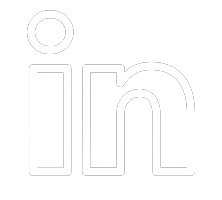Social networking refers to the use of online platforms and websites to connect with other people, share information, and engage in social interactions. These platforms typically allow users to create profiles, share content such as photos and messages, and connect with other users through friend requests or follows. Some popular social networking sites include Facebook, Twitter, Instagram, and LinkedIn. The connection through these social media channels is what makes social networking so special and unique. While social networking can have many benefits, it can also pose risks that should not go unnoticed.
The Good
There are many benefits to social networking even beyond being connected with individuals who share interests with you. Social networking has the ability to go beyond the surface level and dive deeper.
● Connection with others-Social networking provides a way to connect with friends, family, and people with similar interests, no matter where they are in the world.
● Information sharing-Social networking platforms make it easy to share information, news, and updates with a large audience, which can be useful for raising awareness or promoting a cause.
● Community building-Social networking allows people to connect with others who share similar beliefs, interests, or backgrounds, which can help build a sense of community and belonging.
● Accessing resources-Social networking can provide access to valuable resources, such as job postings, educational opportunities, and industry news.
● Entertainment-Social networking can provide a source of entertainment, such as funny videos or interesting articles, which can help to alleviate stress and boredom.
The Bad
Although there are benefits to social networking, there are also negatives to this way of connection. Such as:
● Privacy concerns-Social networking platforms often require users to share personal information, which can be used for targeted advertising or even identity theft. Additionally, social media can make it difficult to control who has access to your personal information.
● Cyberbullying-Social networking can provide a platform for bullies to harass and intimidate others online. Cyberbullying can have serious consequences, including mental health issues.
● Addiction-Social networking can be highly addictive, which can lead to decreased productivity, procrastination, and even sleep deprivation.
● Spread of misinformation-Social networking can be a breeding ground for fake news and misinformation, which can be harmful to individuals and society as a whole.
● Comparison and low self-esteem-Social networking can create a culture of comparison, where people feel pressure to present a perfect image of themselves online. This can lead to low self-esteem and feelings of inadequacy.
The Ugly
Social networking is very unique in its ways of usefulness. Similar to other types of adequate connection building there are positives and negatives to social networking. Although, there is a side to social networking that other areas may not experience. The online world has a way of diminishing its users and refers to the most negative and extreme aspects of online interaction.
● Online harassment and hate speech-Social networking can provide a platform for individuals and groups to engage in hate speech, harassment, and even threats of violence towards others.
● Radicalization-Social networking can be used to spread extremist ideologies and recruit vulnerable individuals to join violent or extremist groups.
● Fake news and propaganda-Social networking can be used to spread false information and propaganda that can have serious consequences, such as fueling political polarization, inciting violence, or influencing elections.
● Exploitation and trafficking-Social networking can provide a platform for human traffickers and other criminals to exploit vulnerable individuals, particularly children and young adults.
● Mental health issues-Social networking can have a negative impact on mental health, particularly for young people who may experience extreme cyberbullying, social isolation, and chronic addiction. Additionally, it is proven that social media can exacerbate mental health issues such as depression and anxiety.
Effectiveness of Social Networking
To effectively use social networking there are a few tips you could follow to ensure you are on an accessible track. Define your goals while social networking to discover what you want out of this strategy. Be your authentic self and engage well with others for maximum benefit. Be sure to properly manage your privacy while maintaining your usage and avoiding overuse. When social networking, always fact check all the information before consuming and remember the importance of being respectful to others and yourself.
These effective social networking tips provide a better look at why social networking is so important in general. Social networking allows us to more easily connect with others as well as create and share content. Social networking helps build brand awareness by gathering feedback and insights all while having the ability to collaborate with others. Social networking is a useful tool and should be used correctly to maximize its potential.
Check out our website for more information to help gain an even better understanding of what we do. Our website also includes endless amounts of successful projects and where our clients come from. On our website you will also have access to information on the members of our team. We are also active on social media accounts like Facebook, LinkedIn and Twitter providing more detail on what our goals are for the clients we work with. Let us help turn prospects into customers through awareness, consideration, conversion, and loyalty.




